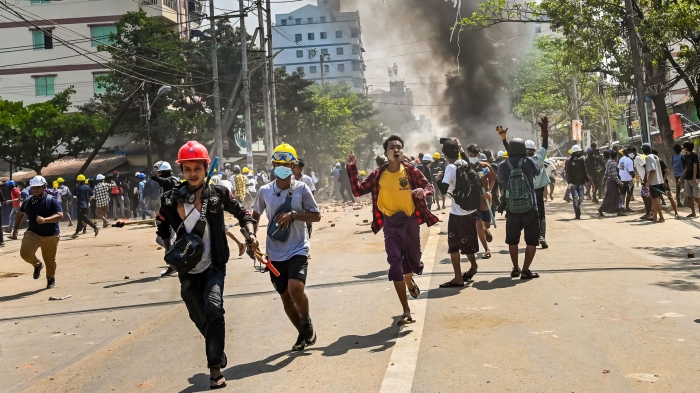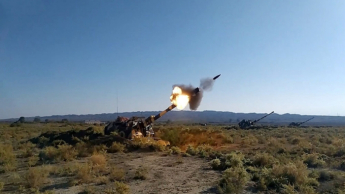Rohingya want to dethrone junta, return to Myanmar

Seventy-year-old Aysar Rahman is one of the more than 750,000 Rohingya who fled Myanmar in August 2017 when its military launched a crackdown that saw villages being burned down, extrajudicial killings, and rape.
Seventy-year-old Aysar Rahman is one of the more than 750,000 Rohingya who fled Myanmar in August 2017 when its military launched a crackdown that saw villages being burned down, extrajudicial killings, and rape.
Leaving behind a big house, a cattle farm and other property, his 8-member family has been living in poor conditions in Cox's Bazar, Bangladesh, the world's largest refugee camp, which hosts over a million Rohingya.
He has accepted his fate for the time being, but is optimistic to return to the home country, where he was denied voting and citizenship rights, one day – with rights and dignity.
His shanty was one of the nearly 10,000 makeshift settlements burned in the March 22 fire at the camp. He, however, is concerned about the current situation in Myanmar, where hundreds of anti-coup demonstrators have been killed since the Feb. 1 military takeover.
“Our main concern is the restoration of democracy in Myanmar, and want to go back to our beloved motherland,” Rahman told Anadolu Agency. “I hope the civil disobedience movement against the military junta will bear fruit."
He said the Tatmadaw – Myanmar's armed forces – has once again been exposed before the world, and Buddhists, the majority community in the Southeast Asian country, have been demonstrating against it.
Protesters have filled streets in Myanmar for over two months against the coup, and detention of Aung San Suu Kyi, the erstwhile state counselor, and other leaders of her National League for Democracy party, which won a landslide victory in the November 2020 elections.
The response by security forces has been brutal with civilians being shot, beatings, detentions as well as nighttime raids.
“We want to return to our homeland where we have been living for generations,” Lutu Begum, 65, told Anadolu Agency. “It’s our right to return to our ancestral land."
“Despite such oppression against us, the majority Buddhists, including Aung San Suu Kyi, were silent. Now they are also suffering," she added.
Suu Kyi at the International Court of Justice in 2019 denied allegations that the military had committed genocide.
“We dream of returning to our motherland and co-exist with the Buddhists we did in the past before the enactment of the 1982 Citizenship Law,” said a Rohingya leader, who has recently been resettled to the remote island of Bhasan Char.
International pressure is also mounting on Myanmar's army to restore democracy and repatriate the minority Muslim community.
A joint statement by 137 rights bodies on Feb. 24 demanded the UN Security Council and UN members to institute “a coordinated, global arms embargo” in response to the coup.
“Our concerns are heightened by ongoing violations of human rights and the security forces’ history of grave abuses against peaceful critics of military rule, as well as against the Rohingya and other ethnic minority groups,” it said.
Many western countries, including the US, UK, Canada, New Zealand, have also expanded targeted sanctions against Myanmar's military junta.
Even Bangladesh has urged the international community to put “meaningful pressure” on Myanmar to accelerate peaceful and conducive repatriation of Rohingya to their home country.
The Rocket and Artillery formations of the Azerbaijan Army conduct live-fire exercises in accordance with the combat training plan for 2021, the Ministry of Defense of Azerbaijan told Baku Tribune.
LAST NEWS






.jpg&h=67&w=67&zc=1&q=100)













